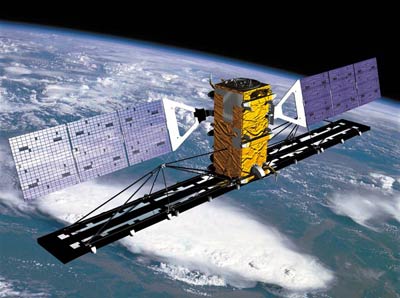Small satellite builders: a tale of two mergersby Taylor Dinerman
|
| The current Harper government is putting real money into rebuilding Canada’s defenses and is responding to threats to Canada’s territorial claims in the Arctic with more than just hot air. Their desire to keep MDA Canadian is just one aspect to this overall “grown up” approach. |
From a US point of view this strategy is, on the whole, a welcome change. Certainly the contribution of fighting forces in Afghanistan and the upgrading of their strategic and tactical transport air fleets is an unambiguous good thing for the Western Alliance. While some in Washington believe that the ocean passages in the far North are international waters according to their reading of international law, most Americans couldn’t care less. If relations between these two states ever got bad enough that Canada thought it should bar US ships from the Northwest Passage, that would be the least of our problems. It would be a good idea if the US government were to relegate its interest in the legal aspects of the Canadian Arctic to the same place it keeps the dossier on US membership in the League of Nations.
For ATK, a better alternative would be to forget about becoming a full-scale space corporation and invest in improving their propulsion technology. The world is looking for breakthroughs in this area and there is no reason why a firm with ATK’s experience and expertise cannot pull it off. There are a few small companies in the US that ATK might seek to acquire, but why should they bother with the M&A expenses? Instead of paying outside lawyers and bankers, they might want to hire more scientists and engineers.
The same week that Canada blocked the sale of MDA came the news that Surrey Satellite Technology Limited (SSTL), the little jewel of a firm that Sir Martin Sweeting created from virtually nothing in the early 1980s, is being sold to the aerospace behemoth EADS Astrium. The company says that it has received assurances about its continued independence. Where previously SSTL had rejected being taken over by EADS, it now feels that it can accept their offer.
EADS has promised that they will not stand in the way of SSTL’s bid to build some, or all, of the next set of Galileo navigation satellites, in spite of the fact that other parts of the big European firm are making their own bid for the work. It is hard to imagine that this will have a happy ending. A similar situation arose a few years ago when BAE found itself trying to sell the Eurofighter and the Saab Gripen multipurpose warplanes to the same customers. The company may in fact have done its best using separate sales teams, but the suspicion was always there that the British firm would favor its own “in house” product.
| While Britain decided long ago to forsake any attempt to be a full-scale space power, abandoning SSTL to its European fate is yet another sign that the British government does not take space seriously |
In the short term there is every reason to think that SSTL will be able to retain its functional independence, but over time it will find itself absorbed into the larger complex, which is a transnational European one with a strong flavor of French control. Indeed, outside of BAE (which the French sometimes refer to as an American aerospace company with its headquarters in Farnborough), most of Britain’s aerospace and defense industry is now controlled by European companies. No matter what the assurances that have been given to the British government, this represents a loss of national control over its national security and defense industry and, ultimately, over national sovereignty.
Like Canada’s MDA, SSTL is the only full-up spacecraft builder in the UK. While Britain decided long ago to forsake any attempt to be a full-scale space power, abandoning SSTL to its European fate is yet another sign that the British government does not take space seriously. This lack of vision will have long-term consequences: a nation that is totally dependent on others for space technology is one that will find itself shut out of major future international decisions.
By the middle of the century a new legal structure for the solar system will have to be agreed on. Only major space players will have a say in this rulemaking process. France, China, Japan, Israel, Brazil, Russia, and the US will all have seats at the table. Canada will too, if they continue to defend their position as they have done recently. If things go on as they have, Britain, if it has a seat at all, will be there only because the other powers felt pity for a once-great nation.
